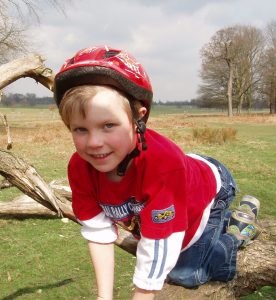
We know that children do not come with an instruction book. We know that you can’t know everything. So we’ve put this list together. It’s a list of things that are NOT normal and should not be ignored when it comes to your child and sleep. These things are signs of a problem. Please don’t ignore the warning signs listed here. Please insist on seeing a health care professional who actually knows what all these problems potentially mean. You may need to see more than one person to sort these problems out but one of those practitioners will often be a dentist and a pediatric ENT that deals with “upper airway obstruction” in kids. A Myofunctional Therapist is another type of practitioner who can be instrumental in the growth, development and functional health of your child’s airway and jaw relationship. We are happy to be in the position to help your child and also to guide you to the right people for proper collaboration. Some of the things on this list will occur in many children who are developing normally. However, others are indicative of serious growth and development issues that can be treated best if treated when your child is younger rather than older.
Here is the list:
- Tongue or lip ties
- Difficulty breastfeeding
- Snoring
- Mouth breathing
- Stopping breathing when asleep
- Teeth grinding when asleep
- Sleep talking
- Sleep walking
- Night terrors
- Bed wetting beyond about 8 years of age, maybe even 5
- Waking up tired
- Tired during the day
- Emotional sensitivity- for example cries at drop of a hat, moody, grumpy, anger management issues 14. Educational problems
- Behavioral issues
- Sleeping with the head arched back
- Restless sleep, tossing and turning
- The bed is all messed up
- Sweating at night
- Chewing on food and spitting certain ones out consistently- especially meat
- Repeated ear infections
- Drools on the pillow
- Wakes up with a headache
- Gasping or waking with a startle
- Fidgety during the day, can’t sit still
- Has symptoms suggestive of ADHD
- Has to be propped up on a few pillows to sleep
- Wakes with a dry mouth and/or dry lips
- Lower jaw sits backwards relative to the upper jaw when viewed from the side
- A narrow upper jaw, with the roof of the mouth sometimes forming a high arch at the same time
- When the mouth is wide open, the tongue cannot touch the roof of the mouth
- Has chewing and/or swallowing problems
- A regular or persistent blocked nose
- Coughing at night
- Regular throat clearing
- Frequent bloody noses, specifically when asleep.
The above symptoms are often indicative of disturbances in breathing – and affect the proper growth and development of the jaws. They can lead to a lifetime of the serious health issues that occur from the conditions of snoring and sleep apnea.
In getting advice, do not accept the following answers without getting a second opinion because the following answers are often given but are often not substantiated by the research:
- They will outgrow it
- It’s normal, lots of kids do this
- It’s just how he/she is
- It’s only a quiet snore so don’t worry about it
- They just take after their dad/mom
- If you can hear them breathing that’s ok, it means they are alive
- Some kids just take a longer time than others to stop wetting the bed
- It’s just a normal phase they are going through
It is very important to use this list to re-evaluate what you believe.
And it’s important you attend to things quickly. The research shows that it only takes 6 months of sleep problems to lead to permanent damage. Damage to the brain, damage to the heart. Damage throughout the body. So please act now.
We can help. We will listen. We will take you seriously. You are not being a paranoid parent. Don’t let your worries be dismissed.
Call us to make an appointment. 757.223.9270 pwdentalarts.com